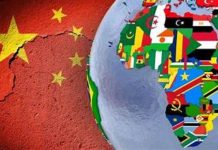ABIDJAN, AUG 7 (AFP/APP): Two years after a global outbreak, fears are rife that a new strain of mpox — previously known as monkeypox — identified in DR Congo and now also in several neighbouring countries could further spread.
Deadlier and more transmissible than previous forms, the mpox strain surging in the Democratic Republic of Congo (DRC) since September, known as the Clade Ib subclade, is spread person-to-person.
The World Health Organization (WHO) said on Sunday it was considering convening an expert committee to advise on whether to declare an international emergency, as it did during the global mpox outbreak in 2022.
The Clade Ib strain causes skin rashes across the whole body, unlike other strains where lesions and rashes are usually limited to the mouth, face and genitals.
The African Union health agency, Africa CDC, registered 14,479 confirmed and suspected cases of the strain and 455 deaths in DRC as of August 3, representing a mortality rate of around three percent.
But researchers in the vast Central African nation say the mortality rate from the strain can be as much as 10 percent among children.
The Congolese government acknowledged last month an “exponential increase” in cases.
“The disease has been seen in the displacement camps around Goma in North Kivu where the extreme population density makes the situation very critical,” Louis Albert Massing, medical coordinator for Doctors Without Borders in DRC said.
“The risks of explosion are real given the enormous population movements” in the conflict-ridden region, which borders several countries, he added.
Already, the Clade Ib strain has jumped national borders — in the last two weeks, cases have been reported in Uganda, Burundi, Rwanda and Kenya, Rosamund Lewis, the WHO’s technical lead for mpox, told AFP.

















